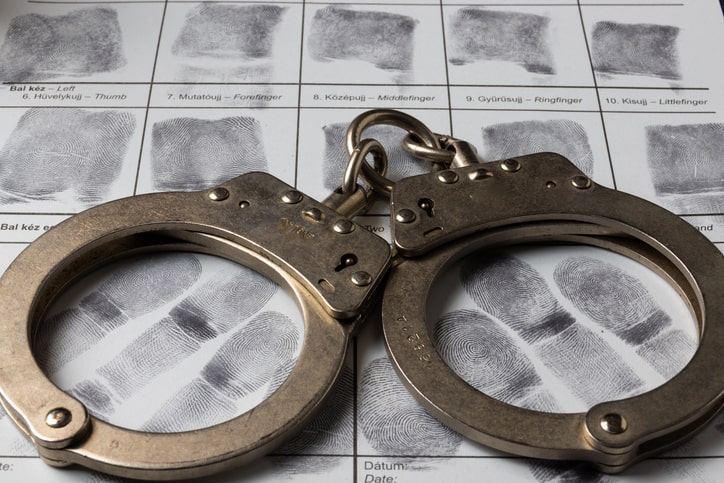At the Griffin Law Office, APC, our professional San Diego criminal defense attorney knows that the chain of evidence, also known as the chain of custody, refers to the documented chronological record of physical evidence’s possession, handling, and location from the time it is collected until it is presented in a California court.
Our San Diego County defense lawyer also knows maintaining a clear and unbroken chain of evidence is essential for ensuring the reliability and admissibility of physical evidence in criminal cases and for upholding the principles of justice and fairness in the legal system.
Here, we discuss how the chain of evidence typically works and why preserving that evidence is essential to criminal defense cases.

How Does the Chain of Evidence Work in Criminal Cases?
The chain of evidence begins with law enforcement officers or forensic specialists collecting physical evidence at the crime scene. They carefully document the evidence’s location, condition, and relevant details.
The following steps in preserving critical evidence include:
- Packaging and Labeling
After collection, the evidence is packaged and labeled securely to prevent contamination, tampering, or damage during transportation and storage. Each item of evidence is assigned a unique identification number or label.
- Documentation
Throughout the process, law enforcement personnel and other individuals handling the evidence must document each transfer or movement of the evidence. This documentation includes the date, time, location, individuals involved, and reason for the transfer.
- Transportation and Storage
The evidence is transported to a secure storage facility, such as a police evidence locker or crime laboratory, where it is stored by established protocols to maintain its integrity and prevent loss or tampering.
- Analysis
The evidence may undergo forensic analysis or testing by qualified experts to extract relevant information or identify critical characteristics pertinent to the case.
- Court Presentation
When the case goes to trial, the evidence must be presented in court to support the prosecution’s case or the defense’s arguments. To be admissible, the prosecution must establish a transparent chain of evidence demonstrating that the evidence presented in court is the same as that collected at the crime scene and has not been tampered with or altered.
- Testimony
Law enforcement officers, forensic specialists, or other individuals involved in the evidence handling may be called to testify in court about the chain of evidence. They may be questioned about the collection, packaging, transportation, storage, and analysis of the evidence to establish its authenticity and integrity.
Why is it Important to Preserve Evidence in a California Criminal Defense Case?
At the Griffin Law Office, our San Diego criminal defense lawyer may challenge the chain of evidence by raising questions about its reliability or integrity, such as suggesting that it may have been contaminated, mishandled, or tampered with at some point during the investigation.
In addition, preserving evidence is crucial in criminal defense cases for several reasons, including:
- Building a Strong Defense Strategy
Evidence is the foundation of any defense strategy. Preserving evidence allows our defense lawyer to analyze the facts of the case, identify potential defenses, and develop a strategic approach to presenting evidence and arguments in court.
- Challenging Prosecutorial Claims
Preserving evidence enables defense attorneys to effectively challenge the prosecution’s claims and evidence. By carefully reviewing the evidence, our defense attorney can identify inaccuracies, inconsistencies, or gaps in the prosecution’s case and use them to raise doubts about the defendant’s guilt.
- Ensuring a Fair Trial
Without all relevant evidence, it may be challenging to effectively challenge the prosecution’s case or present an alternative theory of the events in question.
- Protecting Against Wrongful Convictions
Preserving evidence helps prevent wrongful convictions by allowing our San Diego defense attorney to thoroughly investigate the case and identify any weaknesses or inconsistencies in the prosecution’s evidence. In some cases, newly discovered evidence may even exonerate the defendant entirely.
- Preparing for Trial and Negotiations
Preserving evidence allows our defense attorney to effectively prepare for trial or negotiate plea deals with the prosecution. By thoroughly understanding the evidence, we can assess the case’s strengths and weaknesses and make informed decisions about the best course of action for our client.
Contact Our Skilled San Diego Criminal Defense Attorney Today
If you have been charged with state or federal crime and are unsure what type of evidence the prosecutor or U.S. Attorney has to use against you, contact our skilled San Diego criminal defense attorney to learn more about your legal rights and how we accomplish favorable outcomes for each of our client’s unique needs by calling 619-269-2131 to discuss the details of your case today.













